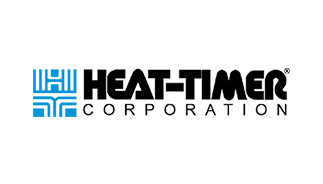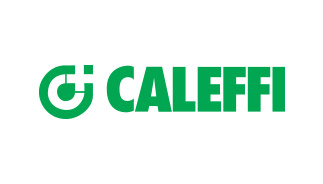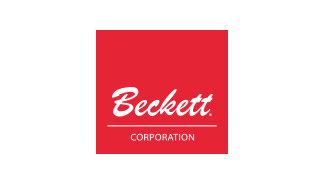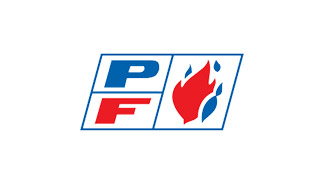Published on
March 10th, 2022Your Yearly Boiler Service and Other Responsibilities
Taking care of the boiler is one of your prime responsibilities as a landlord, as tenants rely on this for heat and hot water all year long. Here are three things that could be on your yearly boiler service calendar. An annual professional servicing of your boiler is a must to keep it running properly and help you get as many years as possible out of it. Calray Boilers typically completes this service from March through September; call today to schedule your annual service appointment.
Boiler Registration
Required every three years
Once a new commercial boiler or significantly rebuilt boiler has undergone initial inspection, it must be registered with the city on a regular cycle. This helps the city keep track of emissions as part of a larger clean air initiative that benefits all residents.
What boilers are required to be registered?
- Boilers with outputs of 350,000 BTUs per hour to less than 2.8 million BTUs per hour
- Boilers with outputs of 2.8 million BTUs per hour to 4.2 million BTUs per hour
Each of the categories above has a separate filing procedure. The DEP allows property owners with multiple buildings to manage them all under one online account. If you need assistance registering your boiler, Calray Boilers is happy to give you a hand.
The Department of Environmental Protection (DEP) requires that you register your commercial boiler once every three years. You will receive a notice from the city when the due date for your boiler registration is drawing near, so you have time to complete the documentation.
If it’s your year for a boiler registration, you definitely want to mark it on your calendar and give yourself plenty of time to get it done, avoiding last-minute submissions. The city can issue citations and fines for property owners who fail to register their boilers on time.
Gas Piping Inspection
Local Law 152
Most properties with boilers in New York City use natural gas to fuel them. If you power your boiler with gas, and if your property is larger than a one- or two-family home, you are required to undergo regular gas piping inspection as per Local Law 152.
The schedule for gas piping inspection rotates every four years, on the calendar cycle. There were some delays during the early part of the coronavirus pandemic, but the city has caught up now. Like boiler registration, you don’t want to forget this essential task, as you can wind up paying the city quite a bit of money in fines.
The inspection schedule is as follows for the next two years:
January 1, 2022 – December 31, 2022
Districts: 4, 6, 8, 9, and 16 in all boroughs
January 1, 2023 – December 31, 2023
Districts: 11, 12, 14, 15, and 17 in all boroughs
If you’re not sure which district your property is in, you can easily look it up online: https://communityprofiles.planning.nyc.gov/.
Gas piping inspections need to be completed by a licensed master plumber (LMP) that has the proper qualifications for this inspection. Call today to schedule this service. We check over the piping where the gas enters the building, as well as gas meters, piping in public spaces, and piping in boiler and mechanical rooms.
How does the inspection process work?
- Within 30 days of inspection, the LMP gives the property owner a Gas Piping Periodic Inspection Report (GPS1). The property owner has 60 days to use this report to file a Gas Piping System Periodic Inspection Certification (GPS2).
- The party that completes the inspection files the GPS2 certification for the property owner with the Department of Buildings (DOB) on the city’s online portal. There is no charge from the city for this.
- Under normal circumstances, you have 120 days to fix any problems that come up during inspection and have your LMP file a Certificate of Correction.
- You can ask for extra time, up to 180 days, to make corrections, but this extension must be requested at the time the GPS1 form is submitted.
- If you have no gas piping, you must submit certification from a licensed design professional, like an architect, that this is the case.
- You must keep all documentation pertaining to Local Law 152 for a minimum of 10 years.
Boiler Professional Service
Regular maintenance to supplement in-house care
We always recommend that our clients perform routine checks on their boiler system to stay on top of any issues that could affect boiler performance. This has multiple benefits for property owners and managers:
- Saves money by correcting malfunctions that waste water and gas
- Reduces wear and tear on the boiler and its related components, extending the boiler’s lifespan
- Prevents small problems from morphing into bigger, more expensive ones
- Reduces headaches from tenant complaints and the like
However, we also encourage all of our customers to schedule routine professional service appointments at least once per year. Some clients feel more comfortable having their boilers serviced biannually, in the spring and the fall. This is a wise proactive tactic if you have an older boiler, a boiler that has had recent trouble, or if you worry about excessive wear and tear on your boiler. As helpful as in-house checks are, some issues can only be identified and remedied by an expert.
At Calray Boilers, we offer annual service agreements to make yearly maintenance even easier. It saves you a bit of money, and you don’t have to worry about remembering to schedule maintenance calls. With all the other tasks you have to worry about, including boiler registration and gas piping inspection, it’s one less thing on your plate.
Need help with your boiler registration or service on your commercial boiler? Call Calray Boilers at 212-722-5506 or get in touch online today to schedule an appointment.










